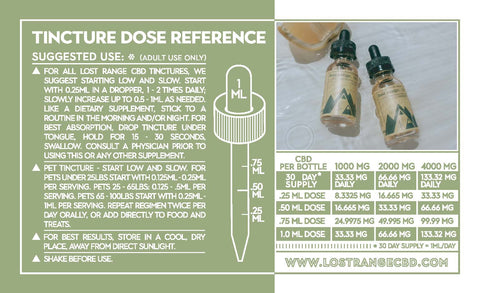
As CBD becomes more popular in people’s everyday lives, there is a growing curiosity around CBD tolerance. However, most that use CBD report consistent effects with the same doses after prolonged use. Does that mean CBD tolerance is a myth? Let's find out.
A whopping 14% of Americans use CBD. 40% of users utilize CBD products for pain, 20% for anxiety, 11% for sleep. With the numbers so high, it's only natural to be curious how CBD can benefit you, and how much you may need.
Substance tolerance is a familiar concept to all those who regularly take supplements or medications. The body can adapt to certain substances, lowering their effectiveness over time. Considering CBD is a supplement people use daily, it’s common to wonder if you will eventually build a tolerance to it.
Continue reading to learn more about tolerance, how it occurs and potential solutions.
What is Tolerance?
Tolerance is a general term that’s applied to various human activities. When it comes to the body, tolerance is the ability to become less susceptible to a substance or physiological effects, especially with repeated use or exposure. Tolerance is categorized into three major categories: behavioral, cellular and metabolic.
Behavioral tolerance is when the body physiologically adapts to the effects of a substance. This is the diminution of substance-induced disruption of a goal-oriented behavior that is dependent on learned processes; for example, performance of a behavior while intoxicated. Essentially, you behave as you would normally even if under the influence of a substance because you have become used to it.
Cellular tolerance is assessed at the neuronal tissue level. This involves cells becoming less responsive to a compound. For example, you may have to drink more and more coffee to stimulate your body when you drink it regularly.
Metabolic tolerance occurs when the body becomes accustomed to a substance so that either more of the substance or an addition of another is required to achieve desired effects.
Tolerance doesn’t have to belong to just a single category. Symptoms can be shown from all three mechanisms depending on the interactions between a particular substance and the body. In addition, it depends on your own genetic structure, physiology, history of substance use and environmental factors how fast you might build up a tolerance.
Can You Build a Tolerance to CBD?
While research on CBD products is still in its infancy, current studies and scientific reviews suggest it’s unlikely you will build up a tolerance to CBD. In fact, long-term use has actually shown results of reverse tolerance. Reverse tolerance refers to the phenomenon in which a person needs less of a substance to feel its effects the more they are exposed to it.
However, we all have different tolerance thresholds that may change over time. So you might need to adjust your dosage, but this isn’t necessarily derived from building a tolerance, but rather changes in your endocannabinoid system and overall body chemistry.
Does CBD Seem to be Losing its Effectiveness?
Although we probably can’t build a tolerance for CBD, there are reasons it might become ineffective. This could be due to:
Final Thoughts
As with the case with most factors related to CBD, further research needs to be completed. However, current research suggests that CBD tolerance can’t be built. In fact, long-term studies have shown that reverse-tolerance occurs, causing the user to need a lower dosage to experience the same effects as before.
Therefore, if your CBD doesn’t seem to be effective, it’s likely due to other reasons you should look into. To ensure you’re getting legitimate products, be sure you’re purchasing from reputable manufacturers. And as with any new supplements, it’s important to take precautions when introducing them into your diet.
If you would like to know more about our products and brand, our staff is always at your service for any questions. Contact us here today.



